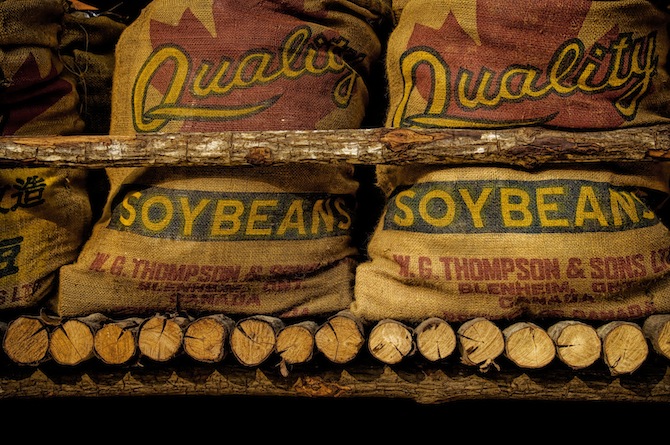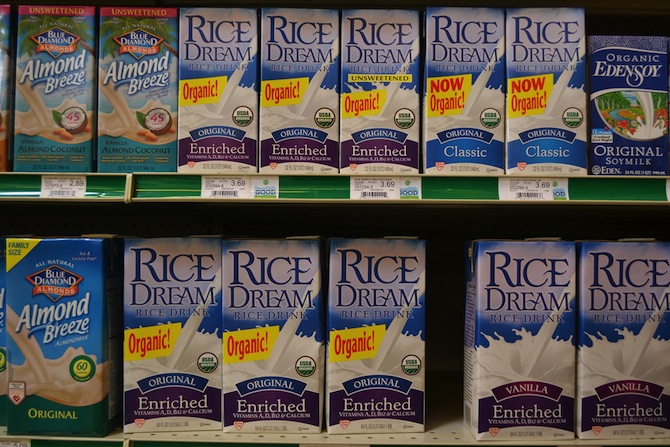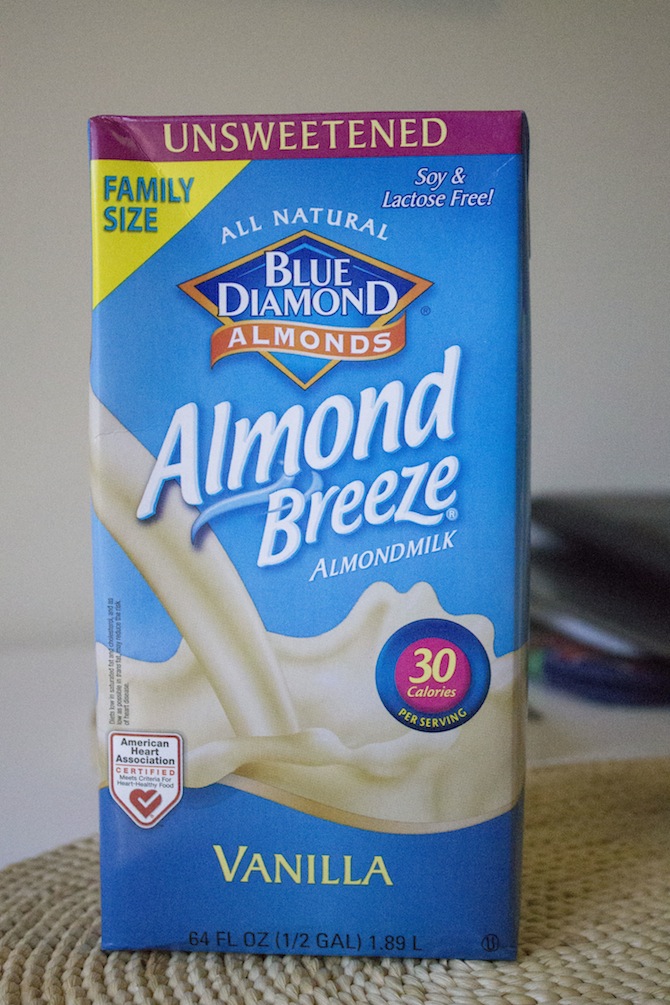If you grew up in a typical American household, your mother probably forced gallons of milk down your throat every day in order to “make you stronger.” Okay, my mother didn’t actually force me to drink milk, but you get my point.
We Americans are obsessed with the food pyramid, and dairy products are easily some of our favorite foods (thank you to whoever created the first grilled cheese). As I’ve grown up, I’ve heard a lot more about dairy milk substitutes, how milk is secretly bad for us, etc, etc. I decided to do some digging and figure out what sets other milk-types apart from our beloved cow’s milk.
Dairy Milk

Photo by Stephanie Lee
Pros: Traditional dairy milk is pasteurized to kill bacteria such as E. Coli and salmonella. It’s a great source of protein, calcium and vitamins D and K. These nutrients are essential for bone growth, and people who don’t drink milk are often deficient in these vital nutrients. Milk also contains potassium, which helps regulate your blood pressure and keeps you healthy overall.
Cons: Studies have shown that although people who don’t drink milk lack the nutrients needed for bone growth, there’s not necessarily a correlation between bone fractures and lack of milk. In many Asian countries, dairy milk is not consumed, resulting in a primarily lactose-intolerant population. Of all the milk types, dairy milk is the highest in calories, which might pose a problem to those looking to lose weight.
Soy Milk

Photo by Trey Ratcliff via Flickr
Pros: Soy milk is naturally low in saturated fat and is cholesterol free. It has roughly the same amount of protein as dairy milk and is also a good source of fiber.
Cons: The major drawback to soy milk is the added sugars found in most brands. Unless you get plain, unsweetened soy milk you’re introducing unneeded and unhealthy sugars to your body. Soy milk is also low in calcium, which is an essential vitamin the body needs.
Rice Milk

Photo by Benjamin Rosenstock
Pros: Rice milk is great for people with severe allergies. Because it’s a mixture of partially milled rice and water, it’s the least likely to trigger allergies compared to other types of milk. Rice milk has no saturated fat or cholesterol and is high in certain antioxidants such as manganese and selenium.
Cons: Rice milk can have up to three times the amount of carbohydrates as dairy milk. Because rice has a lot of starches, it may not be suitable for diabetics to drink as these starches might cause a spike in blood sugar levels. Rice milk has almost no protein, so it’s important that those of you drinking it eat plenty of nuts and meat to compensate.
Almond Milk

Photo by Anna Polovick
Pros: Almond milk is simply roasted and pureed almonds that have had nutrients added to them. Like rice milk, almond milk is free of saturated fat and cholesterol, and at only 60 calories per cup unsweetened almond milk is great for anyone embarking on a healthy-eating plan. It’s also high in vitamin E, which can slow the signs of aging and may help prevent cancer.
Cons: As the name suggests, almond milk is not suitable for those with nut allergies.
All in all, I wouldn’t say that any of these milks are bad for you. Although I’m a born and raised dairy milk fan, I’d definitely like to try out the other milk types to see how they hold up on my morning Cheerios.
Other Articles to Peruse:


